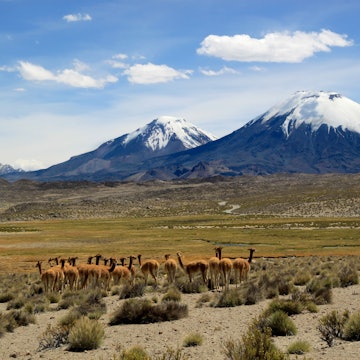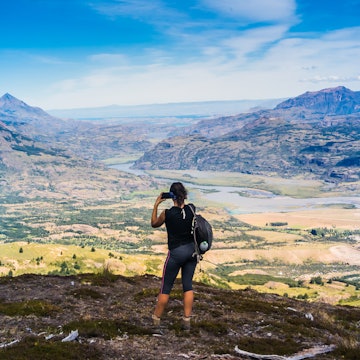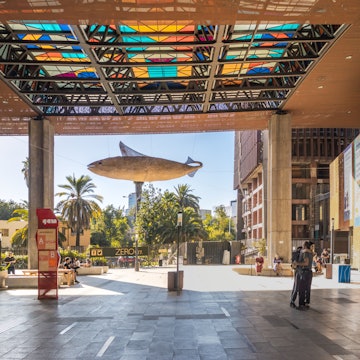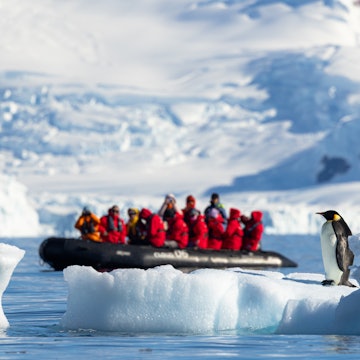

The road to the volcanic blue Lake Miscanti in the altiplano of the Atacama Desert © Jos Driessen / 500px
Ever dreamed of what it’d be like to beam yourself up to a nearby planet?
Chile’s Atacama Desert may be the next best option with desiccated salt flats, inhospitable wildlands and vast lifeless landscapes that NASA uses to test instruments for outer space. One of the harshest places on earth, the Atacama may at first sound dull, empty or even devoid of water; it’s none of those things.
This thin coastal desert, squished between the Pacific Ocean and Andes Mountains, is riddled with oases where it bursts to life, both in fertile river valleys and on the semi-arid Altiplano thousands of feet up above. Add to the mix the planet’s tallest volcano, highest geysers, oldest mummies and clearest skies, you’ve got a recipe for an epic adventure. Below, we offer a guide for how to make the most out of your first visit.

Oases, volcanoes and moonscapes: best places to visit in Atacama
For most international tourists, San Pedro de Atacama may as well be a stand-in for the entire desert. That’s because this quaint little oasis town near the regional mining hub of Calama draws the vast majority of foreign visitors. It’s not hard to see why; San Pedro has a periphery of puffing volcanoes, ethereal moonscapes, steamy hot springs and dreamy desert-chic hotels (see Explora, Tierra or Awasi for inspiration). There’s also a strollable downtown filled with Andean restaurants, craft vendors and adventure outfitters – all tucked behind humble adobe facades.
Atacama's world-class surfing and archeological treasures
The Atacama’s biggest cities all lie along the Pacific Coast and see far fewer international tourists. Iquique and Arica are both world-class surfing hubs. Arica also draws archeology buffs hoping for a peek at Incan ruins or the world’s oldest mummies, which are housed in the nearby Azapa Valley. Antofagasta, a bit further south, is the most cosmopolitan city in the Atacama with a string of high-rise buildings that give it a bit of a Miami-in-the-desert vibe. Bahia Inglesa, even further south, is the most picturesque coastal resort with sugary white beaches that lead to clear turquoise waters.

Best things to do beyond San Pedro
Many of the iconic images you find of the Atacama Desert actually come from the Altiplano some 4,000 meters (13,125ft) above. This is the high-altitude plateau filled with turquoise lagoons, llama-filled plains and sizzling salt flats.
San Pedro is the most common departure point for trips to the Altiplano, but to get off the beaten path, try the parklands above Copiapó or Arica. The former is a base for adventures to Parque Nacional Nevado Tres Cruces, home to flamingo-filled lagoons, multi-hued hot springs and a panorama of 6,000-meter-plus peaks. Mountaineers from around the world flock here to climb Ojos del Salado, the tallest active volcano in the world.
The Altiplano above Arica, meanwhile, is riddled with dozens of Indigenous Aymara hamlets such as Putre, which is the best place to acclimatize for journeys into wildlife-rich parklands nearby, including Parque Nacional Lauca and Reserva Nacional Las Vicuñas.
Adventure activities in Chile's Atacama Desert
Beyond hiking and mountaineering, other popular activities include sandboarding, fat-biking, off-roading and paragliding (particularly in Iquique). Yet, it’s stargazing that is one of the Atacama’s greatest appeals. San Pedro de Atacama and the Elqui Valley are top hubs thanks to the presence of major international observatories.
Fans of ancient rock art should check out the Geoglifos de Pintados near Iquique, where khaki mountains are blanketed in geoglyphs that rival Nazca in Peru. Nearby you also find the Gigante de Atacama, the largest prehistoric anthropomorphic figure in the world. Those into more recent history should check out the dozens of ghost towns on the pampa, including UNESCO-listed Humberstone, whose lavish opera house and sprawling pulperia (trading post) offer a telling snapshot of how the Nitrate Boom (1880s to 1920s) transformed Chile into the nation it is today.

From backpackers to jet setters: where to stay near the Atacama
San Pedro de Atacama is, far and away, the most common base for tourists to the Atacama, appealing as much to dust-covered backpackers as well-healed jet setters.
Elqui Valley is a rival hub that also has a week’s worth of attractions, though it’s technically just south of the Atacama proper. Sand and sea lovers make a happy home out of Bahia Inglesa, while surfers prefer Arica or Iquique.
Copiapó is among the more appealing cities in the middle of the desert with a good clutch of hotels and day-trip access to both serene beaches and stunning Altiplano landscapes. Tiny towns with big appeal include Pica, a desert oasis near Iquique that grows the limes used in pisco sours, and Putre, a high-altitude Aymara village near Arica on the overland route to Bolivia.
The best time to visit the Atacama Desert
Unlike the rest of Chile, there’s really no bad time to visit the Atacama Desert. In fact, the coastal northern cities are known as places of “eternal spring” as temperatures barely budge from month to month. Of course, this is a desert, so no matter what time of year you visit, expect temperatures to drop considerably as soon as the sun drops.
If barren beaches are the main draw, you may prefer warmer summer months (December to March) when the cool ocean temperatures are more tolerable. Summer is also best for any mountaineering trips. This is the time of year, however, when sporadic rains on the Altiplano can make some roads impassable. January and February see some destinations – including Bahia Inglesa, Iquique and San Pedro – overrun with domestic tourists.
Winter (June to September) is a fine time to visit with midday temperatures at lower altitudes quite pleasant. You’ll need a heavy jacket for evenings, though, particularly if you’re headed up on the Altiplano where it can be below zero with snow. For great deals and even greater weather, visit in the shoulder seasons.
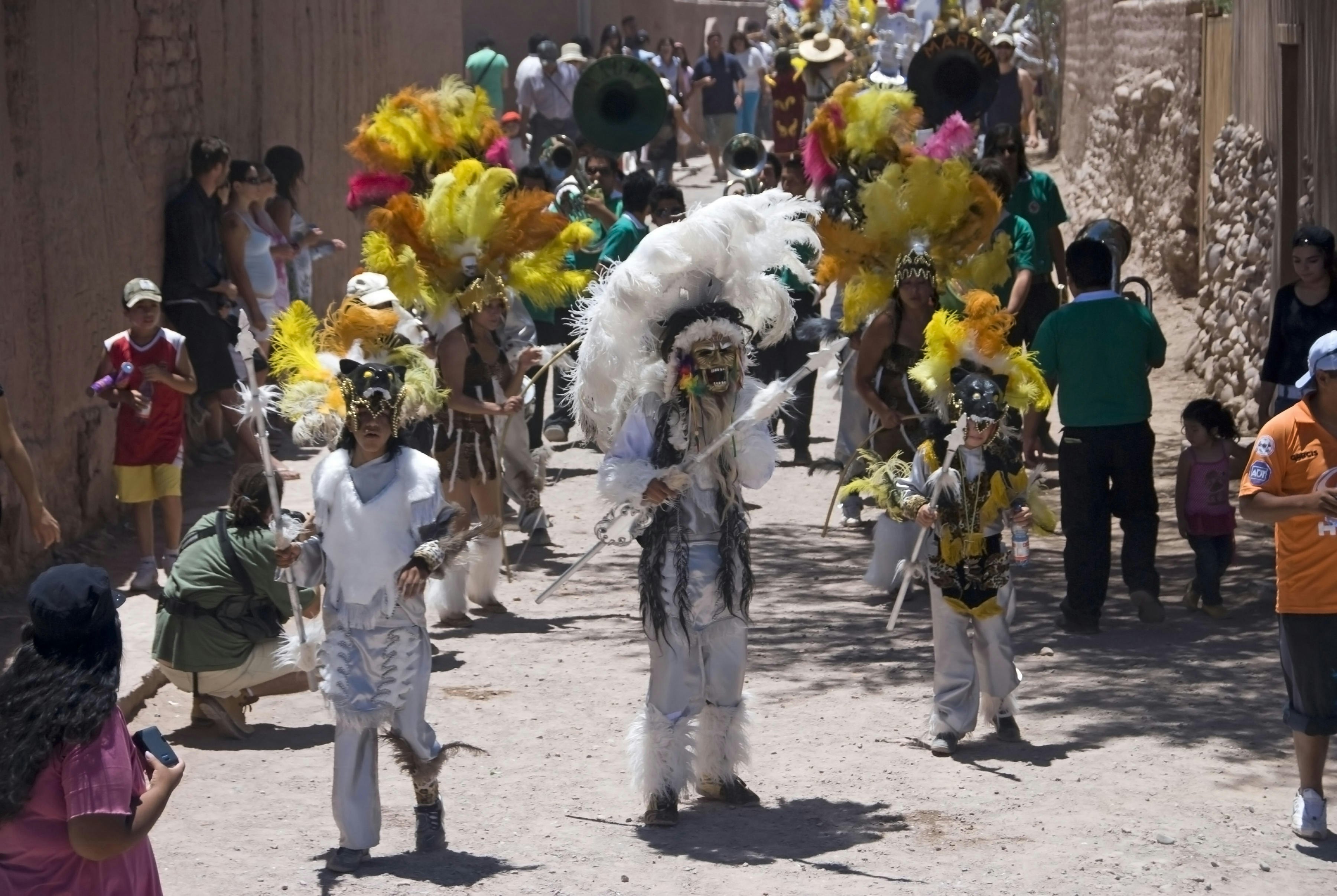
How to get to and around the Atacama Desert
There are no direct flights to the Atacama Desert from abroad. You’ll first need to fly into Santiago and then connect onward to either La Serena (for the Elqui Valley), Copiapó, Antofagasta, Calama (for San Pedro), Iquique or Arica. Bus connection is great between all of these hubs, but to really get out into nature you’ll need to either book tours from each city or rent a car.
It rarely makes sense to rent a vehicle in Santiago and drive all the way to the Atacama as the distance is long and the gas expensive. Instead, most people wanting their own wheels rent a car at a northern airport upon arrival. In general, the roads are quite good – that is, until you get up onto the Altiplano, at which point they can deteriorate rapidly into sand traps. Many high-altitude roads are also riddled in potholes and hard to navigate; an extra jug of gas is a must.
Backpackers often travel by bus to the Atacama from neighboring countries. Common points of departure include Salta (Argentina), Tacna (Peru), La Paz (Bolivia) and Uyuni (Bolivia). If traveling by bus from Santiago, expect a journey of up to 24 hours to reach places like San Pedro.
The Atacama is on our 2022 Best of Travel list. For more stories from some of the world’s most exciting destinations click here.
Safety recommendations and restrictions during a pandemic can change rapidly. Lonely Planet recommends that travelers always check with local authorities for up-to-date guidance before traveling during Covid-19.
You might also like:
Nature writ large: a great escape to Chile
The best road trips in Chile: From Patagonia to the Atacama Desert
Do you need a visa to go to Chile?













